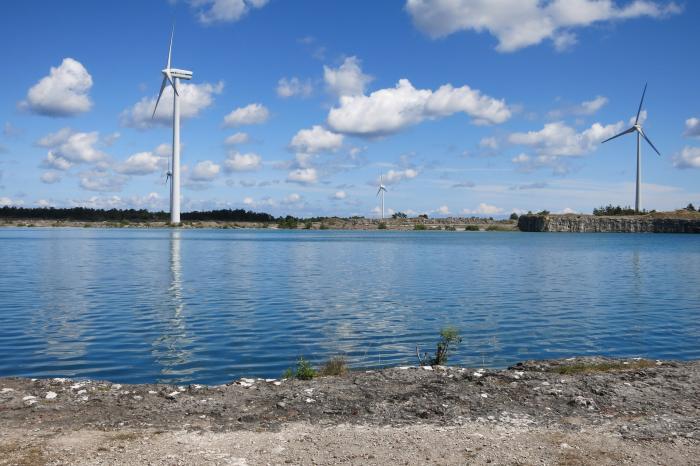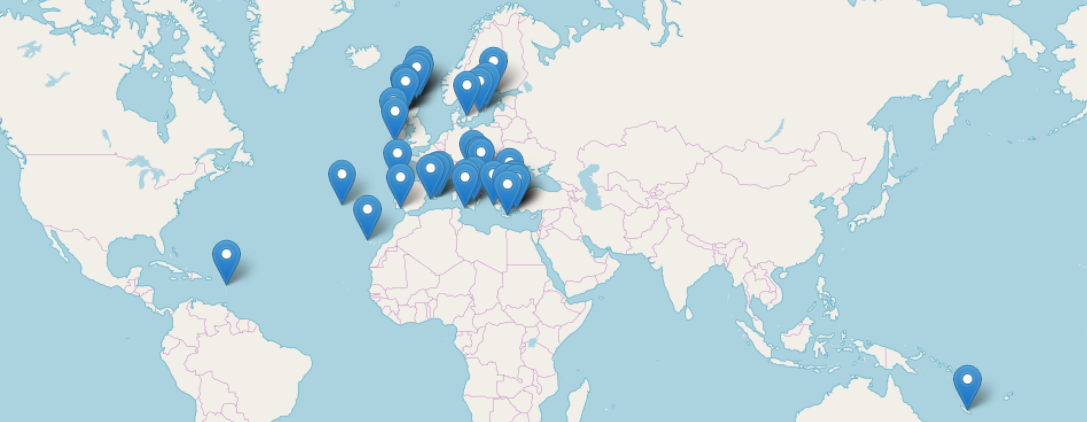
European Commission initiative kick-starts energy transition process with islands to support them in becoming more self-sufficient, prosperous and sustainable.
Press Alert
Brussels, 18 February 2019 - Today, 26 European islands have officially launched their clean energy transition with the support of the European Commission’s Clean Energy for EU Islands Secretariat.
In a first phase, 6 islands, the Aran Islands (Ireland), the Cres-Lošinj archipelago (Croatia), Sifnos (Greece), Culatra (Portugal), Salina (Italy) and La Palma (Spain) will develop and publish their clean energy transition agendas by summer 2019. The other 20 islands will do so by summer 2020.
These islands are:
|
• Hvar, Croatia |
• New Caledonia, France |
• Pantelleria, Italy |
• A Illa de Arousa, Spain |
| • Brač, Croatia | • Crete, Greece | • Azores, Portugal |
• Gotland, Sweden |
| • Korčula, Croatia | • Samos, Greece | • Ibiza, Spain |
• Öland, Sweden |
| • Kökar, Finland | • Cape Clear, Ireland | • Mallorca, Spain |
• Orkney, UK |
| • Marie-Galante, France | • Favignana, Italy | • Menorca, Spain |
• Group of Off-Grid Scottish Islands, UK |
Explore the Secretariat's interactive map of pioneering EU islands
Dominique Ristori, Director-General for Energy at the European Commission, said:
“The 26 islands selected display a remarkable potential and enthusiasm for developing strong and lasting multi-stakeholder collaborations around the clean energy transition. By embarking on this path, not only will they become more energy self-reliant and prosperous, but also provide inspiring examples for other islands and Europe as a whole. This in turn will help the EU achieve its ambitious climate and energy targets.”
There are more than 2200 inhabited islands in the EU. Despite having an abundance of renewable sources of energy, such as wind, solar and wave energy, many of them currently depend on expensive fossil fuel imports for their energy supply. The clean energy transition can help islands not only become more self-sufficient and prosperous, but also unlock new employment opportunities in their communities.
The objective of the Clean Energy for EU Islands Secretariat is to help as many European islands as possible embark on and advance their clean energy transition in a way that includes the whole island and its stakeholders. Based on experience with successful transition processes, the key to success is to involve all levels of governance of the islands - citizens, municipalities, local businesses, universities and schools – as well as relevant stakeholders from the mainland and bring them on board to actively support and shape their own transition.
Croatian MEP Tonino Picula said: "Islands are becoming more and more visible on the European agenda. The support for 26 islands throughout the Union is an important step in making island communities torchbearers in clean energy transition. This is a first, but an important, step in securing permanent EU assistance to islands. Congratulations to everyone!"
The 26 islands were selected based on their potential for establishing a high-quality transition process with the support of the Secretariat. In order to serve as inspiring examples for as many European islands as possible over the coming years, special attention was paid to including islands covering a broad variety of geographic and contextual conditions.
*** ENDS ***
Notes to the Editor
About the islands
An interactive map with further information on the islands selected for support by the Clean Energy for EU Islands Secretariat is available here.
About the Clean Energy for EU Islands Initiative
As part of the Clean Energy for All Europeans package, the EU's Clean Energy for EU Islands initiative provides a long term framework to help islands generate their own sustainable, low-cost energy. The Clean Energy for EU Islands initiative was launched in May 2017 in Malta, when the European Commission and 14 EU countries (Croatia, Cyprus, Denmark, Estonia, Finland, France, Germany, Greece, Ireland, Italy, Malta, Portugal, Spain, and Sweden) signed a Political Declaration.
About the Clean Energy for EU Islands Secretariat
The Clean Energy for EU Islands Secretariat provides comprehensive guidance to islands on how to kick-start and advance their clean energy transition in the form of stakeholder engagement methodology, support in the preparation of transition agendas, capacity-building, technical support on developing projects and financial plans as well as networking and community-building opportunities.
Press contact
Maja Jurisic, maja.jurisic@euislands.eu, +385 98 94 32 19

